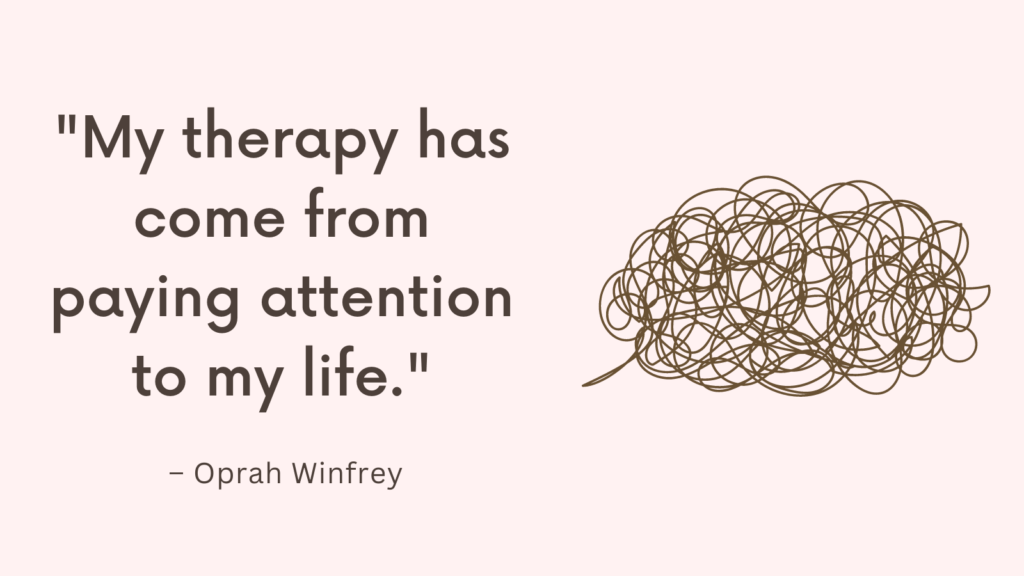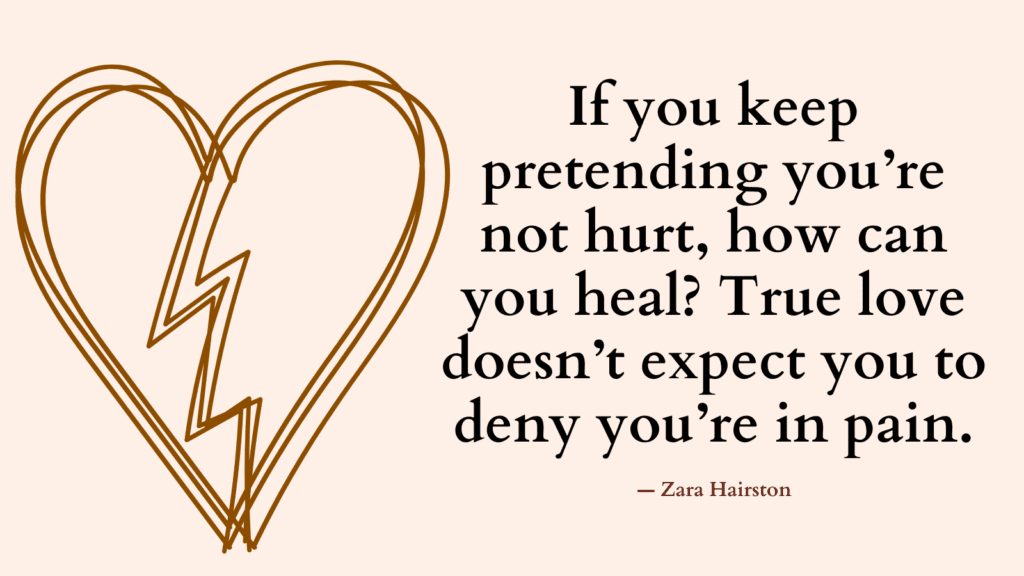This post contains some of the best signs you grew up in a toxic family.
Signs You Grew Up In a Toxic Family
Here are some signs that you may have grown up in a toxic family:
1. Lack of trust
In a toxic family, trust is often broken or nonexistent.
You may have difficulty trusting others, constantly questioning their intentions or doubting their loyalty.
2. Constant criticism
Toxic families thrive on criticism and negativity.
If you grew up constantly being criticized or belittled, you might find it hard to accept compliments or have low self-esteem.
3. Emotional volatility
Toxic families often have a rollercoaster of emotions, with frequent outbursts of anger, yelling, and unpredictable mood swings.
As a result, you might struggle with regulating your own emotions and tend to react impulsively.
Related: Top 13 Signs You Are Healing From Trauma (& How To Build Emotional Resilience)
4. Manipulation and control
Family members in toxic environments typically manipulate others to maintain control.
You may have grown up feeling manipulated or coerced into behaving a certain way, leading to difficulties asserting yourself as an adult.
5. Lack of boundaries
Toxic families often disregard personal boundaries, intruding on privacy and personal space.
As a result, you may struggle with setting healthy boundaries in relationships, leading to codependency or difficulties saying “no.”
6. Irresponsible or neglectful behavior
Toxic families may exhibit irresponsible or neglectful behaviors, such as neglecting basic needs, emotional support, or failing to provide a stable environment.
This can lead to feelings of insecurity and a lack of self-worth.
Related: Healing From Emotional Abuse In 12 Practical Steps
7. Enmeshment or isolation
In toxic families, you may experience either extreme enmeshment, where individuality is not allowed, or isolation, where you feel emotionally detached from family members.
This can make it challenging to form healthy relationships or develop a strong sense of self.
8. High levels of stress and anxiety
Living in a toxic family environment often leads to chronic stress and anxiety.
You may have grown up constantly on edge, anticipating conflicts or walking on eggshells around family members.
9. Difficulty expressing emotions
Toxic families discourage the expression of emotions, particularly vulnerable ones like sadness or fear.
Consequently, you may struggle to identify and express your own emotions or have difficulty empathizing with others.
10. Repetition of unhealthy patterns
Growing up in a toxic family increases the likelihood of repeating similar patterns in adulthood.
This can manifest as choosing unhealthy relationships or engaging in self-destructive behaviors.
Related: Top 5 Emotional Incest Signs & How To Heal From It

How to Heal from Toxic Family?
Healing from a toxic family situation can be a challenging process, but with time and effort, it is possible to find healing and create a healthier life for yourself.
1. Seek support
Surrounding yourself with a strong support system can provide the understanding, validation, and encouragement needed to navigate the healing process.
This support can come from trusted friends, therapists, support groups, or online communities. Sharing your experiences and feelings with people who have gone through similar situations can help validate your emotions and reassure you that you are not alone.
Additionally, seeking professional help through therapy can provide a safe space to process your past experiences, develop coping mechanisms, and work towards rebuilding your sense of self-esteem and self-worth.
Related: Emotional Abuse Test (+Resources For Emotional Abuse Recovery)
2. Set boundaries
Boundaries act as protective barriers, allowing you to create and maintain healthy relationships with yourself and others.
Start by identifying the behaviors or actions that are toxic or harmful to you, such as constant criticism, manipulation, or neglect.
Once you have a clear understanding of these toxic patterns, communicate your boundaries assertively and respectfully to your family members.
For example, you might explain that you will no longer tolerate disrespectful language or will limit contact if they continue to engage in toxic behavior.
Remember that setting boundaries is not about punishing others, but rather about prioritizing your emotional and mental health.
It may take time for your family members to adjust to these new boundaries, so be patient and compassionate with yourself and them.
Related: Top 10 Tips For Setting Boundaries With Narcissistic Parents
3. Practice self-care
By prioritizing your own well-being, you can create a healthier and more positive environment for yourself.
Self-care can take many forms, depending on your individual needs and preferences.
This could include engaging in activities that bring you joy and relaxation, such as practicing mindfulness or meditation, pursuing hobbies you are passionate about, or spending time with trusted friends or supportive individuals.
Taking care of your physical health is also essential, whether it’s through regular exercise, getting enough sleep, or eating nutritious meals.
Setting boundaries and learning to say no are key elements of self-care, enabling you to protect yourself from further toxicity.
Related: Top 45 Self Care Day Ideas at Home To Kickstart Your Self Care Ritual
4. Learn healthy coping mechanisms
Developing healthy coping mechanisms such as practicing self-care, mindfulness, and self-reflection are essential in this healing process.
Here is a simple mindfulness exercise you can try:
1. Find a quiet and comfortable space where you can sit or lie down without distractions.
2. Close your eyes and take a few deep breaths, focusing on the sensation of the breath entering and leaving your body.
3. Begin to bring awareness to your body. Starting from the top of your head, slowly scan down through your body, noticing any areas of tension or discomfort. As you bring your attention to each area, imagine sending relaxation and compassion to that part of your body.
4. Shift your attention to your thoughts and emotions. Without judgment, observe any thoughts or emotions that arise related to your toxic family dynamic. Notice any patterns or recurring themes that come up for you.
5. As these thoughts and emotions arise, remind yourself that they are separate from who you are as a person. Practice self-compassion by acknowledging the pain they may bring but not allowing them to define you.
6. Bring your focus back to your breath, using it as an anchor to ground yourself in the present moment. Whenever your mind starts to wander, gently guide your attention back to your breath.
7. Engage your senses in the present moment. Notice the sounds around you, the feel of the ground beneath you, or the temperature of the air. Allow yourself to fully experience the present without getting caught up in past experiences or future worries.
8. Before ending the exercise, take a moment to acknowledge your strength and resilience in dealing with a toxic family dynamic. Remind yourself that you have the power to create a healthier and more nurturing environment for yourself.
Remember, practicing mindfulness takes time and consistency.
Related: Dysregulated Nervous System: Top 9 Signs & How to Heal
6. Challenge negative beliefs
Toxic family environments often perpetuate harmful narratives that can cause significant damage to one’s self-esteem and well-being.
Recognizing these negative beliefs and actively working to challenge their validity is essential for personal growth and healing.
Firstly, it is important to identify the negative beliefs that have been ingrained in your mind.
These could be thoughts like “I am not worthy of love” or “I will never succeed in life.”
By writing them down and acknowledging their presence, you begin to bring them into your conscious awareness, taking away some of their power over you.
Next, scrutinize these beliefs and ask yourself if they are based on reality or if they are simply remnants of the toxic environment you grew up in.
For example, if you were constantly criticized by your family members, it may have led you to believe that you are inherently flawed or incompetent.
However, objectively evaluating your achievements and recognizing instances when you have thrived can help challenge this belief.
Furthermore, practicing self-compassion is vital as you challenge these negative beliefs.
Understand that it is normal to have these thoughts given your upbringing, but recognize that they do not define you.
Treat yourself with kindness and remind yourself that everyone has flaws and makes mistakes.
Related: Negative Core Beliefs List (& 8 Tips On How To Challenge Them)
7. Educate yourself
By gaining knowledge about toxic behaviors, dysfunctional dynamics, and the impact they can have on your mental well-being, you gain a greater understanding of what you have been through and start to reclaim your power.
Educating yourself about healthy boundaries, communication techniques, and self-care practices can empower you to set healthier relationships standards and make informed decisions moving forward.
For instance, learning about different types of toxic behaviors like manipulation, gaslighting, or emotional abuse can help you recognize patterns that may have been normalized within your family.
Understanding how these behaviors operate allows you to break free from cycles of guilt, self-doubt, and blame, enabling you to prioritize your own healing and growth.
Equipping yourself with knowledge also empowers you to establish and maintain healthy boundaries, which are essential when healing from toxic family dynamics.
Learning about assertiveness techniques, effective communication strategies, and self-advocacy skills can help you clearly define what is acceptable and unacceptable treatment, and assertively assert your needs and limits.
This not only protects your own well-being but also sets the foundation for healthier relationships in the future.
Additionally, educating yourself on the importance of self-care and self-compassion plays a vital role in the healing process.
Discovering various self-care practices such as mindfulness, therapy, journaling, or engaging in activities that bring you joy and fulfillment can help you reconnect with yourself and foster healing.
By prioritizing your own well-being, you gradually rebuild your self-esteem and resilience, ultimately breaking free from the toxic influences of your family.
Related: Best 10 Books About Childhood Trauma

Conclusion
Healing from a toxic family requires resilience and a commitment to your own well-being, but it is possible to find peace and happiness beyond the toxicity.
Be patient and kind to yourself throughout the process, and don’t hesitate to reach out for professional help as needed.



